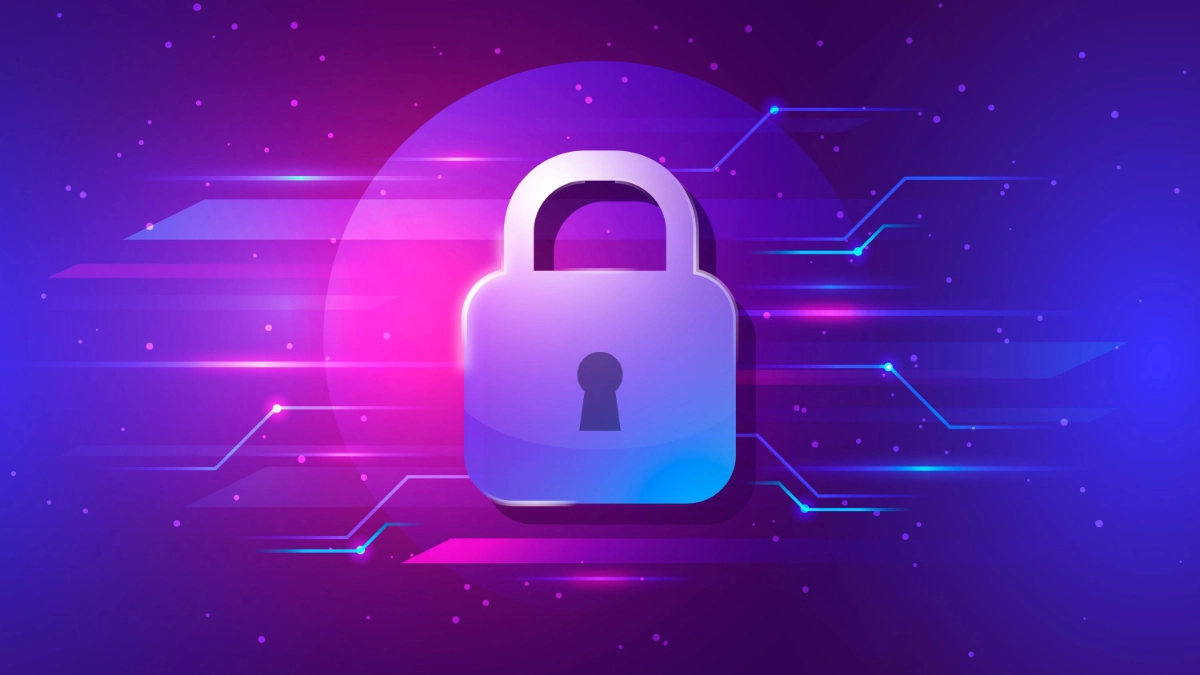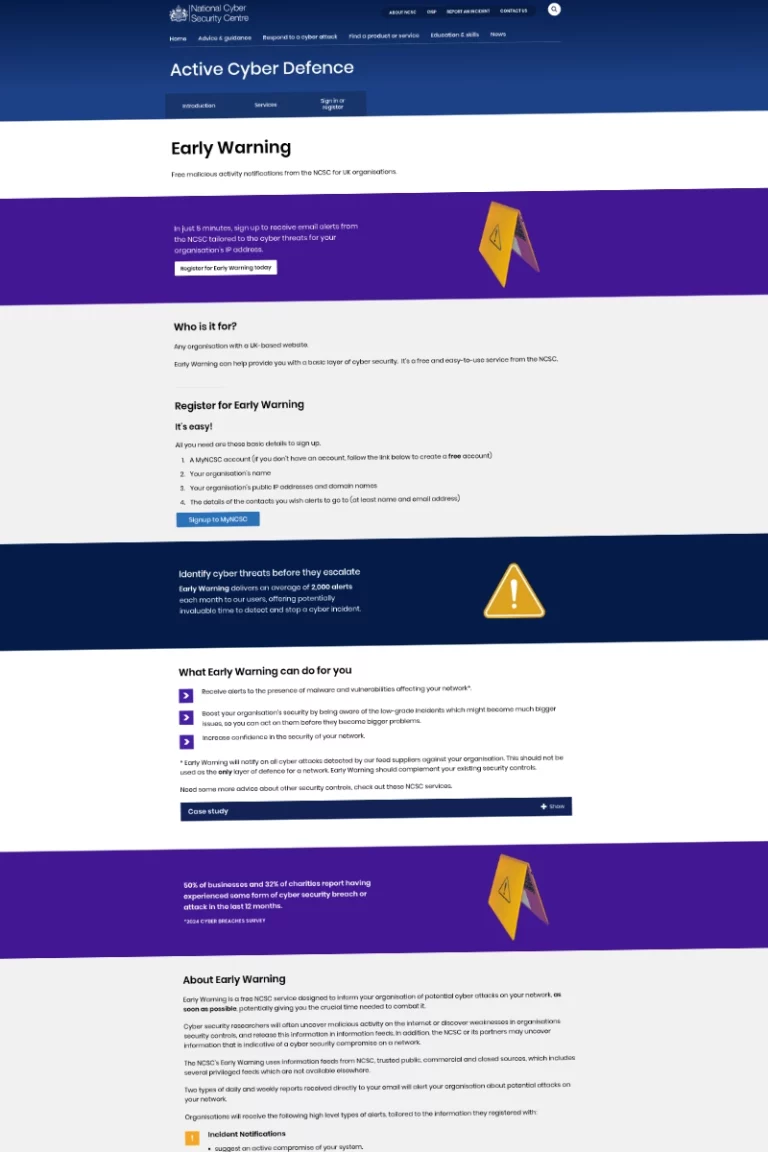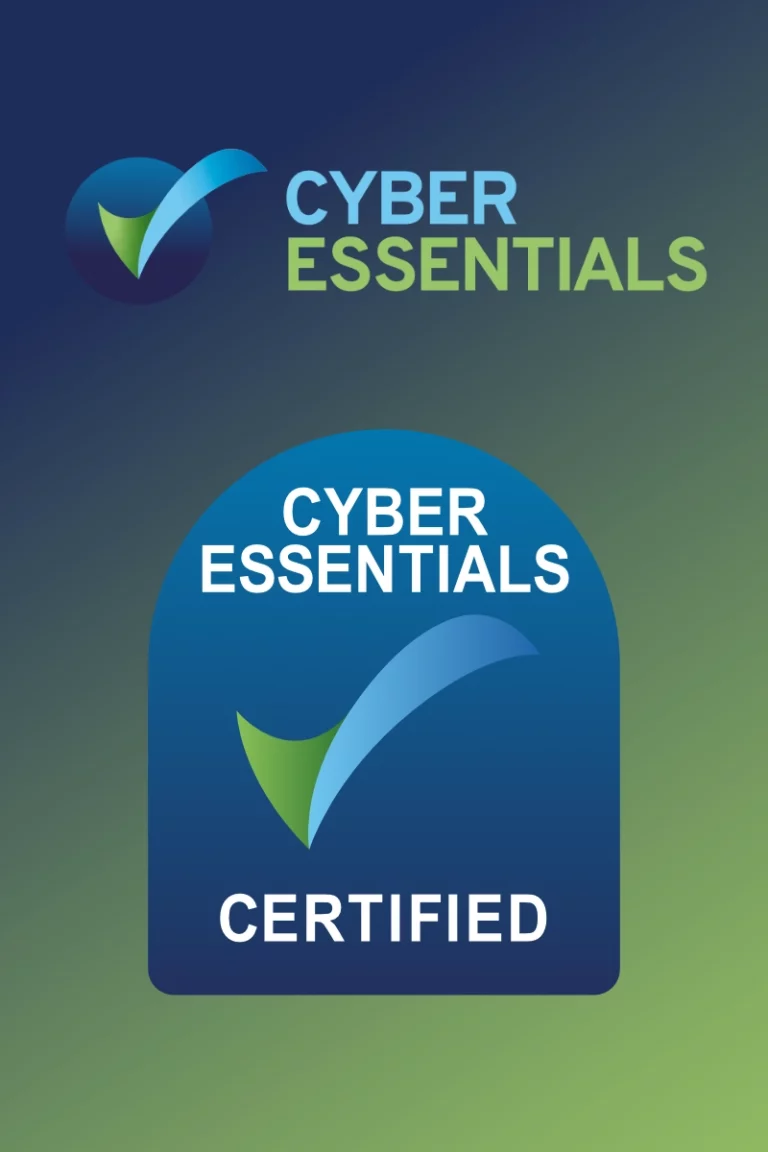
Did you know that many online threats can be stopped using just a few simple steps? Whether you are a one-person firm, a growing team, or a large corporation, a few well-chosen protocols can boost your online safety. They will prevent many common cyber threats.
When processes become complicated, shortcuts often creep in. While these may save time initially, they risk your digital security.
Small to medium-sized businesses are a vital part of our economy. In Britain they employ 16.6 million people with an estimated £2.8 trillion turnover1. However, smaller businesses often have fewer resources available, which puts them at an increased risk of cyber attack2.
Here are some simple cyber defence habits and actions that will help reduce mistakes and avoid misunderstandings.

The basics of simple cyber defence
Start with the most fundamental and effective defence: unique, strong passwords. We strongly encourage adding multi-factor authentication (MFA). MFA, also known as two-factor authentication (2FA), uses multiple security checks to verify users when they log on.
Keep your systems updated with regular software updates and ensure firewalls are activated.
Anti-virus software is one of the strongest tools against security attacks. The right software could make the difference between a successful breach and a blocked attempt.
Limit user access to only the resources and information each role requires. Every individual must have a unique account. Routine tasks like processing invoices or managing email should never be done using administrator accounts. Administrator privileges allow critical system changes, so reserve them strictly for system management.
People are your key players in cybersecurity
People are the first line of defence. Every person using your technology plays a role in keeping data safe. Cybersecurity relies on technology, but if someone clicks on the wrong link or uses weak passwords, other defences become useless. Cybersecurity is not just the IT department’s responsibility—it involves everyone.
Manage your account settings carefully

Check your security regularly
Assess your digital resilience by detecting and addressing any data breaches.
The National Cyber Security Centre (NCSC), part of the Government’s Communication Headquarters (GCHQ), offers a free service for UK organisations. It carries out simple online checks to find common vulnerabilities in public-facing IT systems. Other providers offer similar more in-depth checks—always research and verify before proceeding.
Reduce your digital footprint
Every time you go online, you leave a digital footprint revealing your activities. Reducing this footprint makes it harder for cybercriminals to target you.
Check our top tips on limiting your digital footprint.
If you need more help, we can identify vulnerabilities and support organisations to protect themselves before cybercriminals act.
Cyber Essentials accreditation and insurance
Cyber Essentials—the UK Government’s minimum baseline security standard—aligns with five technical controls designed to prevent common internet-based cyber threats: firewalls, secure configuration, security update management, user access control, and malware protection.
UK companies that achieve Cyber Essentials may qualify for £25,000 of insurance. This covers liability, event management, extortion threat, regulatory investigations, and business and network interruption. To qualify for the cyber insurance, the entire organisation must be certified, be domiciled in the UK or Crown dependencies, have an annual turnover under £20 million and opt-in to the insurance. For more details, see IASME.
Other organisations, such as our partners at Howden, also provide financial protection and critical first-response support to investigate, control, mitigate, and remove cybersecurity threats.

Ready to take your cybersecurity to the next level?
Protect your business and reassure stakeholders that you take digital safety seriously.

Our jargon-free cybersecurity training is an ideal way to help your team confidently spot dangers. Our experienced consultants can help you achieve and maintain Cyber Essentials, IASME Governance and ISO27001 certifications.
We also have a full catalogue of free resources and a number of supporting guides, including Don’t take the bait! Recognise phishing attacks, Key changes to the Cyber Security and Resilience Bill, Cybersecurity talent shortage crisis threatens digital resilience and many more.
Cyber Resilience Centre
Cybercrime awareness skills are a fundamental requirement for all organisations, regardless of scale.
The National Cyber Resilience Centre Group (NCRCG), a not-for-profit, police-led organisation that helps strengthen cyber resilience in small to medium-sized businesses. Supported by the Home Office, the group has a network of regional Cyber Resilience Centres across the UK offering free and affordable cyber resilience guidance, support and services.
You can locate your local Cyber Resilience Centre and find out more about the NCRCG on their website.
Build an effective cyber aware culture
When a breach or attack occurs, investigate and isolate affected systems immediately to prevent further damage.
Conduct a risk assessment to understand the issue, control it, and decide on next steps. Notify relevant parties such as the Information Commissioner’s Office (ICO) and affected individuals or organisations.
You don’t need a cybersecurity boot camp to protect your business from cybercrimes. Simple steps can make all the difference.
We can help protect your business
We assist by developing an effective cyber aware culture tailored to your organisation.
Our step-by-step approach and jargon-free communication have contributed to our 100% success rate. You can be confident you are in safe hands.
Give us a call or complete our online contact form to get in touch.
Contact Us01926 800710





